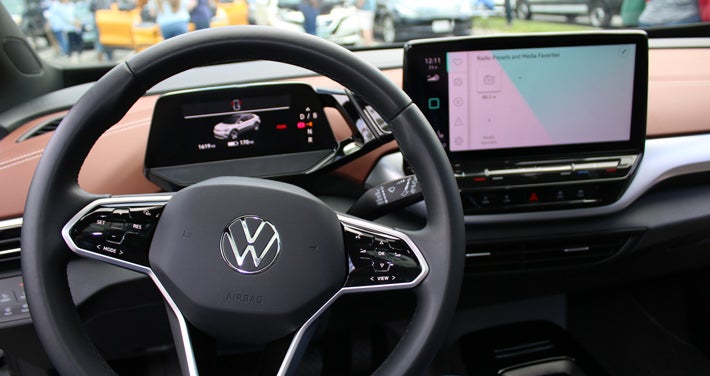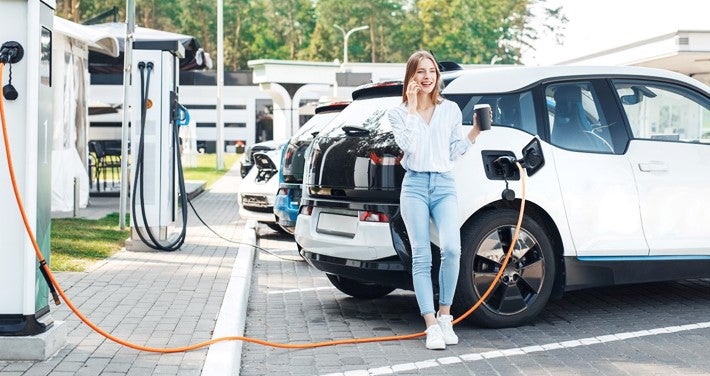Understanding the basics and supporting infrastructure can help you make an informed purchase
EVs, HEVs and PHEVs
All-electric vehicles (EVs), also referred to as battery electric vehicles, use a battery pack to store the electrical energy that powers the motor. EV batteries are charged by plugging the vehicle into an electric power source. Today's hybrid electric vehicles (HEVs) are powered by an internal combustion engine in combination with one or more electric motors that use energy stored in batteries. A plug-in hybrid electric vehicle (PHEV) is a hybrid electric vehicle whose battery pack can be recharged by connecting to an external power source, in addition to internally by its on-board internal combustion engine.

EV Rebates & Incentives
The following offerings are not affiliated with Unitil and are shared for informational purposes only. It is always prudent to consult your tax, legal, and/or accounting advisors before engaging in any transaction.
Massachusetts Offers
- Rebate of up to $3,500 for an eligible EV purchase via the Massachusetts Offers Rebates for Electric Vehicles (MOR-EV) program. Learn more at MOR-EV.org
- Unitil is offering rebates to get your home, garage, driveway, or business ready to charge an electric vehicle! Learn more and start your Ready2Charge Rebate application.
Other Helpful Resources
There are many available resources dedicated to advancing smart transportation.
- PlugStar by Plug In America to view available vehicles and their range
- Drive Change. Drive Electric.
- Go Electric Drive
- State of New Hampshire EV information
- Massachusetts EV information
- EPA
There are more than 65 EV models available today.
By 2024, nearly 140 models are expected.




